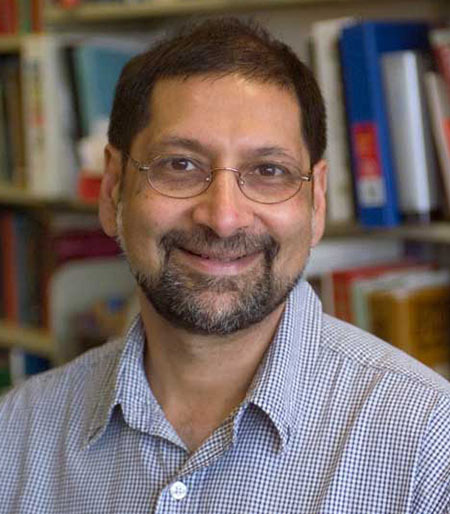Jeevak Parpia wins low-temperature physics prize
By Linda B. Glaser

Professor of physics Jeevak Parpia, M.S. ’77, Ph.D. ’79, is one of three winners of the 2017 Fritz London Memorial Prize. The prize, administered by Duke University and awarded every three years, recognizes scientists who have made outstanding contributions to the field of low-temperature physics.
The prizes will be presented at the opening ceremony of the 28th International Low Temperature Physics Conference, Aug. 9-16 in Göteborg, Sweden. Parpia and co-winners William Halperin, Ph.D. ’75, and James Sauls, both of Northwestern University, will be asked to deliver lectures at the conference. The prize includes an approximately $10,000 award.
“This is one of the most prestigious prizes in condensed matter physics,” said Eanna Flanagan, physics chair and the Edward L. Nichols Professor of Physics and professor of astronomy, noting that 11 winners of the prize have gone on to receive the Nobel Prize in Physics. “We are delighted that Jeevak’s groundbreaking work has been recognized in this way.”
Parpia is the third Cornell faculty member to win the prize: John Reppy, the John L. Wetherill Professor of Physics Emeritus, received it in 1981; and Seamus Davis, James Gilbert White Distinguished Professor in the Physical Sciences, in 2005.
Parpia and his co-winners received the prize for seminal experimental and theoretical work on superfluid helium-3 (3He) in silica aerogels. According to the administering committee, the work has provided “deep insights into the understanding of complex symmetry breaking in unconventionally paired condensed matter in the presence of disorder. This has proved to be a remarkable system for investigating the effects of disorder on unconventionally paired condensates … and other exotic superconductors.”
The committee noted that the original discovery by the prize winners has been followed by a broad research program spanning more than 20 years, and has stimulated a great deal of worldwide activity.
“Since the discovery of superfluid 3He in aerogel, [21] years ago, it has taken a dominant role in research on 3He worldwide,” the committee wrote. “This includes more than 50 principal investigators in 33 laboratories and theoretical groups in 10 different countries: Canada, Finland, France, Germany, Japan, the Republic of Georgia, Russia, Ukraine, the United Kingdom and the U.S.”
After receiving his bachelor’s degree from the Illinois Institute of Technology in 1973, Parpia came to Cornell and joined the low-temperature group as a physics graduate student, studying the viscosity and superfluid density of 3He near the superfluid transition. He has continued his work on 3He, and expanded his research interests to confined films. His other areas of interest include nano- and micro-mechanics and the physics of glasses, with the goal of combining these with ultra-low temperatures.
Parpia’s other honors include being elected an American Physics Society Fellow in 2004, named a Guggenheim Fellow in 1993-94, and an Alfred P. Sloan Fellow from 1982-86. He served as chair and interim chair of the Department of Physics in the College of Arts and Sciences from 2012-16 and has published more than 200 papers in peer-reviewed journals.
Linda B. Glaser is a staff writer for the College of Arts and Sciences.
Media Contact
Get Cornell news delivered right to your inbox.
Subscribe